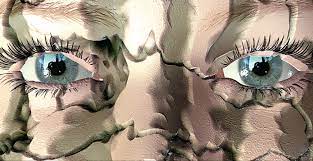Distorted perceptions are a huge problem. They can distort your reality and make you think that things are better than they really are. The following 15 tips will help you see the world as it is. Some people want to see it differently, but it really is not like that. These tips will help you see the world as what it actually is.
Contents
What are Distorted Perceptions?

Distorted perceptions are a problem where our mind is not able to see the world as it is. Instead, we see things in a way that is distorted and does not represent reality. This happens due to many factors, including stress, anxiety, depression, and other mental health problems. It can occur because of traumas or any other events that have changed our perspective on life.
20 Distorted Perceptions That You May Face

Below are 20 of the most common distorted perceptions that people face.
- Black and White Thinking: This is where you see the world in terms of absolutes. There is no middle ground, and everything is either good or bad.
- Catastrophizing: This is when you think that something minor will turn into a major catastrophe. For example, if you spill coffee on yourself, you may catastrophize and think that your whole day has been ruined.
- Excessive Perfectionism: This is when you strive for perfection in everything that you do, even though it is impossible to achieve. As a result, you are never happy with what you do and are always disappointed.
- Focusing on the Negative: This occurs when we focus exclusively on the negative aspects of any situation while ignoring positive ones.
- Labeling: This is when you use negative labels to describe yourself or others. For example, ‘I am so stupid’ or ‘He is always selfish’.
- Minimizing: This is where you downplay your own emotions and the extent of a situation. For example, if someone says that they are anxious about something it may be minimized with responses like “It’s not that bad” or “it will be fine”.
- Personalization: This occurs when we take responsibility for events over which we have no control. If I win at Monopoly one evening I might personalize this by thinking my wife was being nice to me because she wanted presents in return rather than just simply enjoying playing games with me!
- Predicting Disaster: This happens when we predict that something bad will happen, even though there is no evidence to support this. For example, you may think that because you had a fight with your partner, they are going to leave you.
- Relying on First Impressions: This happens when we form an opinion of someone or something based on our first impression, without giving them a chance to change it.
- Selective Attention: This occurs when we focus exclusively on the information that confirms our beliefs while ignoring any contradictory evidence.
- Self-Blame: This is when we blame ourselves for things that are not our fault. For example, if I get angry at my partner for something that they have done wrong I am engaging in self-blame as it’s not their fault – it’s mine.
- Selective Memory: This is when you remember things in a way that fits with how you want to see them, rather than the reality of what happened. For example, if I had an argument with my partner one evening and they weren’t very nice to me afterward I might selectively forget this so that my memory only contains the part where they were being really lovely!
- Tunnel Vision: This happens when we focus solely on something without taking other factors into account. For example, someone may totally consume by their career goals at the expense of neglecting their family relationships. They are then surprised when these relationships fall apart because no one was there for them anymore!
- Wishful Thinking: This is when we hope for the best outcome in a situation, even though there is no evidence to support this. For example, you may hope that your partner will change their behavior even though they have never done so in the past.
- Magnifying: This is where we exaggerate the importance of something or the negative impact that it will have. For example, if I get a poor mark on an assignment I may magnify this by thinking that it means I’m a terrible student and will never be successful.
- Emotional Reasoning: This is when we assume that our emotions reflect reality. For example, if I feel like a then I must be one!
- Mindreading: This is when we assume that we know what someone else is thinking or how they are feeling.
- Blaming: This happens when the responsibility for something rests with someone/something else rather than yourself, even though it’s your fault!
- Fortune Telling: When you predict an undesirable future without any evidence to support this prediction. For example, you may predict you will fail your driving test next time without any real evidence.
- Pessimism: This is when we expect the worst in a situation and that there’s no hope of things working out well or getting better.
These are just some of the distorted perceptions that we can face in our lives. If you recognize any of them in yourself, don’t worry – you’re not alone! Many people experience these thoughts and feelings on a regular basis. The important thing is to understand what they are and how they are impacting your life. Once you know this, you can start working on correcting them.
What are the Tips To Help Distorted Perceptions?

Here are some tips to help you correct your distorted perceptions and see things as they truly are:
- Get away from any stressful situation. This will allow you to relax, which can make it easier for you to focus on what is really happening around you.
- Make sure you are getting enough sleep. Sleep deprivation can cause distorted perceptions, so make sure to get roughly seven hours of rest every night.
- Eat healthy food and try to exercise regularly. If your body is not in its best condition, it can be hard for you to concentrate on reality because your mind will fixate on the pain you are feeling.
- Talk to someone about how you are feeling. This can be a great way to release any built-up stress or anger, and it can also help you gain a new perspective on the situation.
- Avoid any type of drugs or alcohol. These substances can severely distort your perception, so it is best to avoid them altogether.
- Drink plenty of water. This can help alleviate any headaches or pain that you may be feeling, which will give you a clearer headspace to think about things logically.
- People who make you feel good about yourself are people to spend time with. These people will help you be happy. People who bring you down should not come over. If they do, they will make your mood worse and your friends will see that and want to leave too. Spend time with people who make you feel good about yourself and avoid spending time with people who bring you down so they do not keep bringing your mood down!
- Make lists for what is bothering you. Often times writing out our problems in list form helps us realize how small they really are in comparison to everything else going on in life.
- Go outside every day no matter how busy we get during the weekdays. It doesn’t have to be long but just enjoys being there even if for a short while.
- Challenge your thoughts. If you find yourself thinking negatively, try to challenge those thoughts and see if they are really true.
- Take some time for yourself every day to do something that you enjoy. Whether it’s reading, painting, or listening to music, taking some time for yourself can help clear your head and relax your mind.
- Remind yourself that things could always be worse. When we start to feel down about our situation, it is helpful to remember that things could always be worse. This will help us put things into perspective and realize that we still have many reasons to be grateful.
- Talk positively about ourselves in front of a mirror every day. Seeing ourselves in a positive light can help us start to believe that the distorted perceptions we have about ourselves are not true.
- Journal every day. This can help us document our thoughts and feelings, which can be helpful in identifying any patterns that may be causing our distorted perceptions.
- Look into therapy. If you feel like you are struggling with your distorted perceptions, it may be helpful to seek out professional help from a therapist. They will be able to guide you through the healing process and help you learn how to live without distorting your reality.
These 15 tips should help you start correcting your distorted perceptions! Remember, it is going to take time and effort but it is definitely worth it in the end!
Conclusion
Brain scans show that we can’t trust our eyes because what we see is heavily distorted by past experiences. The brain’s memory process causes us to perceive the world through a lens of distortions, mental models, and biases.
This means you may be seeing things that aren’t there or not seeing them at all! So how do you know if something you’re looking at is real? You need to rely on other senses like touch and smell as well as sight. But don’t worry: your brain will automatically update its memories with new information over time so it becomes more accurate.
If you are looking for affordable Online Counseling MantraCare can help: Book a trial therapy session


